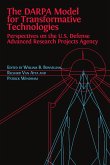The book skillfully bridges the gap between complex polymer science and real-world implementation, making it accessible to both technical professionals and environmentally conscious readers. The narrative progresses logically from historical context to cutting-edge developments, examining how materials derived from sources like corn starch, cellulose, and agricultural waste are being transformed into viable plastic alternatives.
Through evidence-based chapters, the book presents compelling case studies across various sectors, including packaging, automotive, and medical industries, demonstrating the practical potential of bioplastic technologies. Particularly fascinating is the book's examination of biodegradation rates and lifecycle analyses, which provide crucial insights into the environmental impact of these materials.
The work stands out for its balanced approach to controversial topics, such as the food-versus-materials debate in agriculture and varying international biodegradability standards. It combines technical precision with practical guidance, making it an invaluable resource for professionals in biotechnology, environmental engineering, and materials science. By integrating findings from multiple disciplines and providing detailed implementation strategies, the book offers a roadmap for industries transitioning to more sustainable material solutions while acknowledging current limitations and future possibilities.
Dieser Download kann aus rechtlichen Gründen nur mit Rechnungsadresse in A, B, BG, CY, CZ, D, DK, EW, E, FIN, F, GR, H, IRL, I, LT, L, LR, M, NL, PL, P, R, S, SLO, SK ausgeliefert werden.









